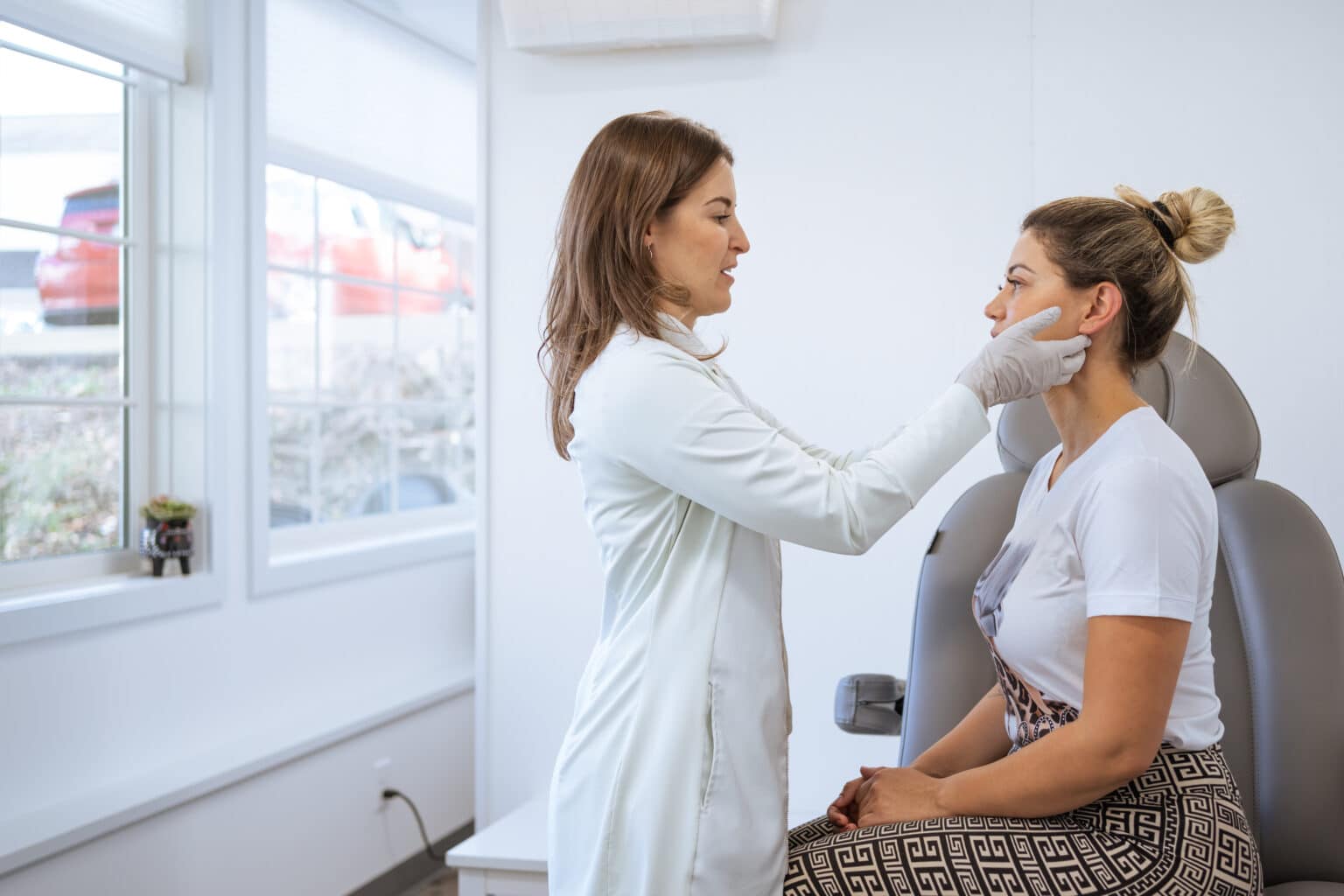Eczema, also known as atopic dermatitis, is a condition that causes your skin to become inflamed or irritated. These areas of red and itchy skin are most common in children but can occur at any age. Most infants who develop this condition will outgrow it while others continue to have it throughout their lives.
What Causes Eczema?

Healthy skin is able to keep in moisture and protect you from bacteria, irritants and allergens; the skin of those with eczema lacks the ability to do this. Most cases of eczema are related to a gene variation but food allergies may also play a role. Those with a personal or family history of eczema, allergies, hay fever or asthma are at a greater risk of developing this condition.
Flare-ups of eczema may appear in response to certain substances or conditions. Having a cold or upper respiratory infection, stress, feeling too hot or too cold or coming into contact with animal dander or household products like soaps or detergents are the most common causes of a flare-up.
What Are the Symptoms of Eczema?
While the signs of eczema may vary person to person, the most common symptoms include:
- Dry skin
- Itching
- Red to brownish-gray patches, especially on the hands, feet, ankles, wrists, neck, eyelids, inside the bend of the elbows and knees and for infants on the face or scalp.
- Small, raised bumps
- Thickened, cracked and scaly skin
Asthma, chronic itchy or scaly skin, skin infections, hand dermatitis, allergic contact dermatitis and sleep problems are all potential complications from untreated eczema.
Those who expensive periods of eczema that are so uncomfortable they affect your sleep or daily activities, have a skin infection (this can be identified by the appearance of red streaks, pus or yellow scabs) or continue to experience these symptoms regardless of home remedies should seek medical attention.
How Is Eczema Treated?
In order to make a diagnosis, your doctor will review your medical history and examine your skin. Allergy tests may be performed to determine possible irritants or triggers.
While there is no cure for eczema, most people are able to manage their symptoms through the use of medical treatments and avoiding irritants.
Over-the-counter moisturizers and prescription corticosteroid creams and ointment can help with inflammation. Creams containing calcineurin inhibitors, known as topical immunomodulators, are used to control the skin reaction by altering the immune system. If you have a bacterial infection, antibiotic cream or an oral antibiotic will be prescribed.
Oral antihistamines can also be used to help severe itching.
Non-medical treatments can also be quite effective at treating eczema. Wet dressings involve wrapping the affected area with a topical corticosteroid and wet bandages. Light therapy involves exposing the skin to a certain amount of natural sunlight; other forms call for exposure to artificial ultraviolet A and narrow band ultraviolet B.
Counseling sessions with a therapist as well as relaxation and behavior modifications can help people take control of their skin.
Call ENT & Allergy Specialists – Ear Nose and Throat Physicians and Surgeons at (859) 781-4900 for more information or to schedule an appointment.